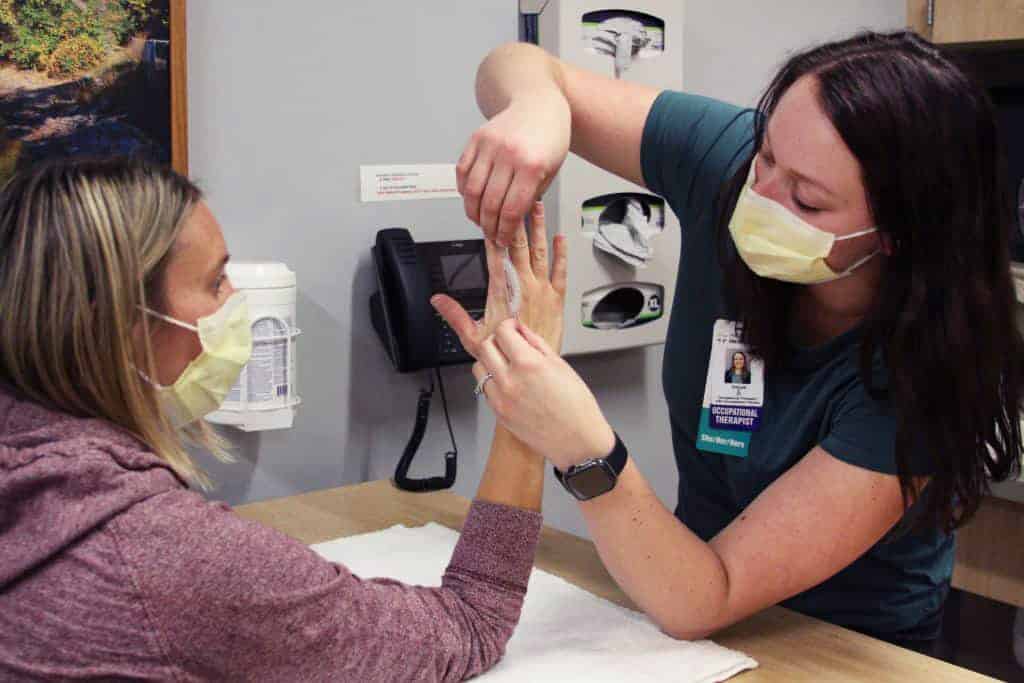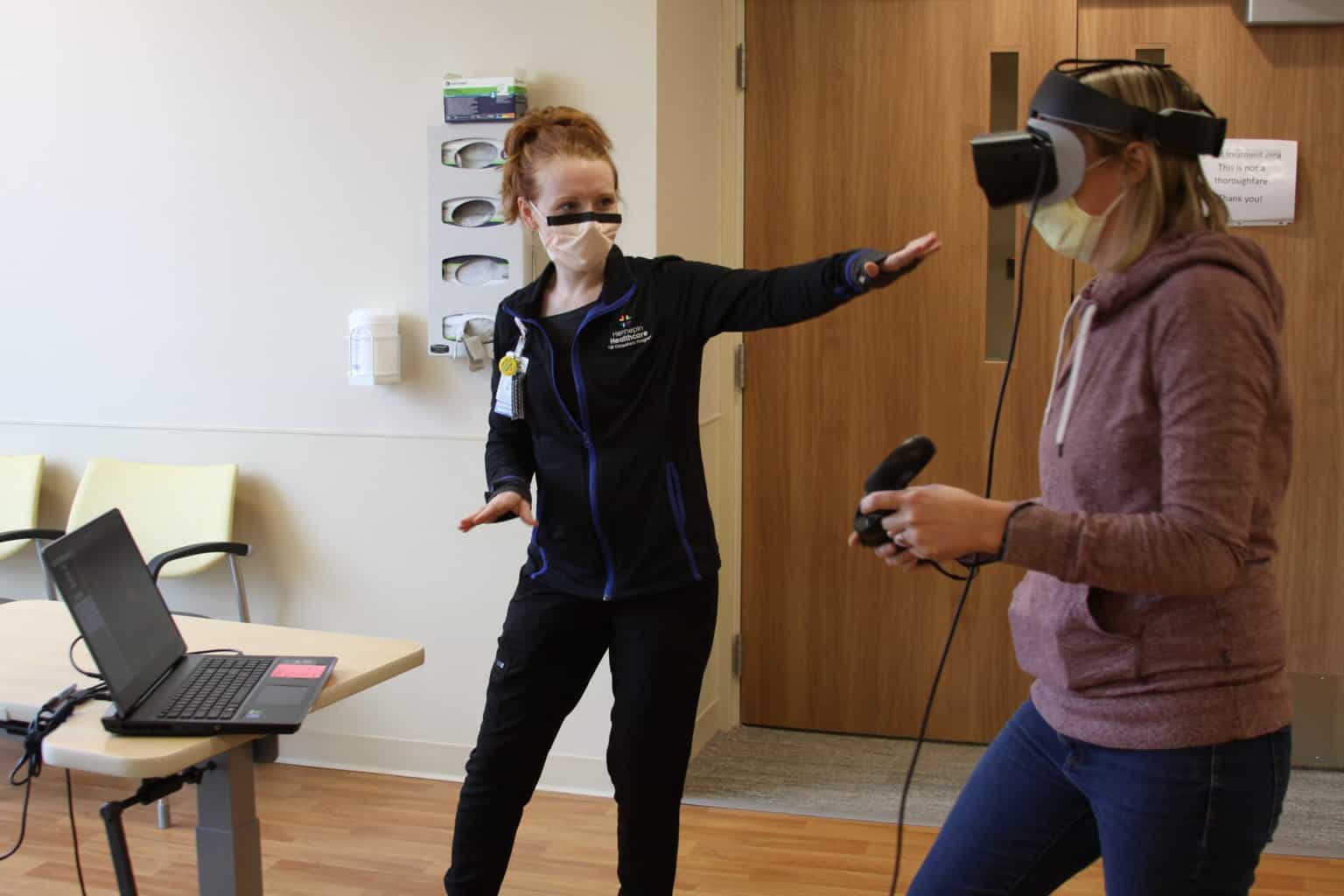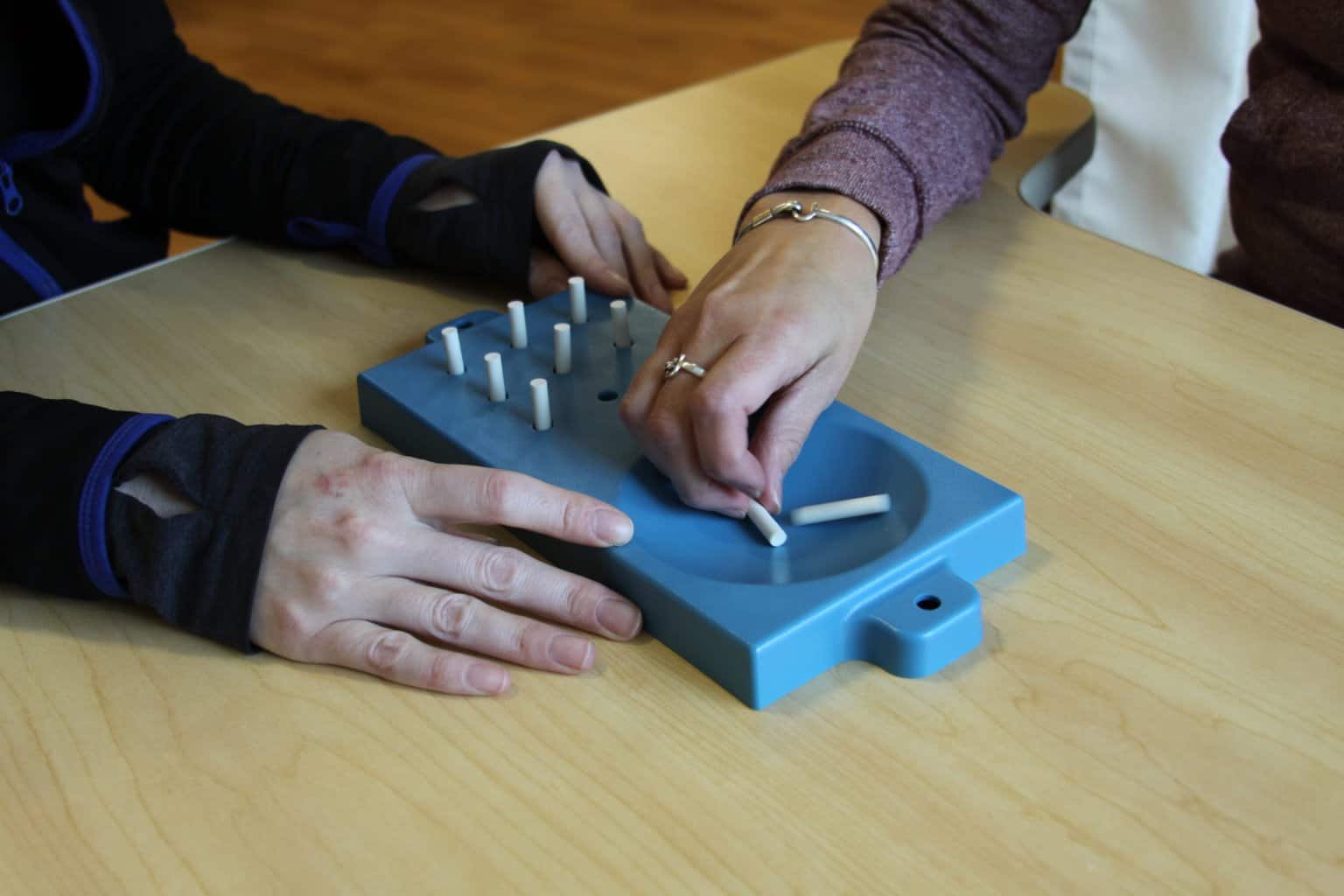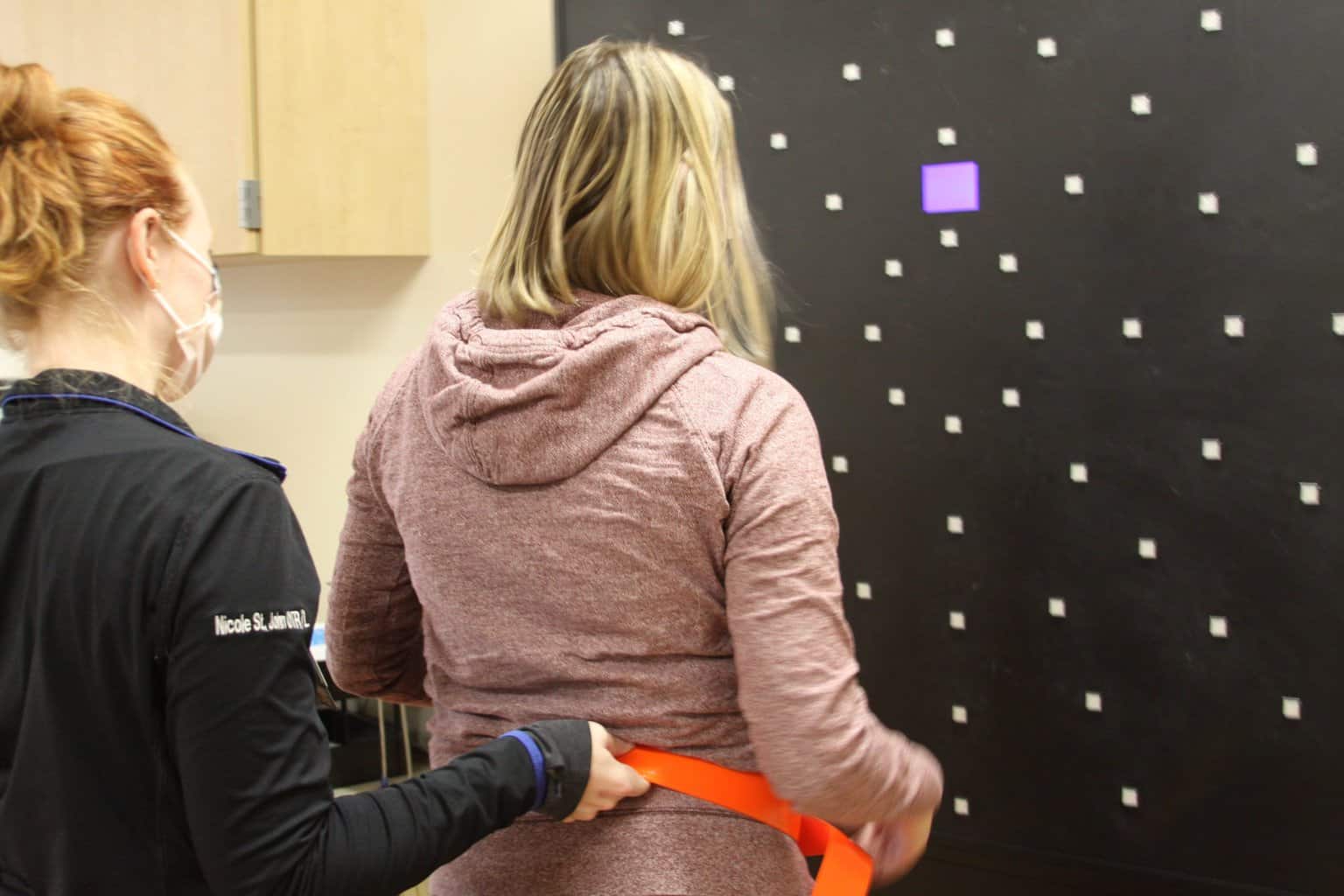
Occupational Therapy
Occupational therapy can help people develop, recover, improve, and maintain skills for independence in all areas of their lives. Occupational therapists promote health and wellbeing by enabling people to participate in the everyday occupations of life, such as self-care activities including showering, dressing, and preparing food; productive activities such as education, work volunteering, and caring for others; and leisure/social activities.
Locations
Services
Hennepin Healthcare provides excellent comprehensive occupational therapy care for both inpatients and outpatients of all ages. Using an interdisciplinary approach and a patient-focused treatment plan, therapists work to achieve patient goals from the very beginning of their journey.
All occupational therapists at Hennepin Healthcare hold a bachelors (BA, BS) or masters (MS, MOT), or doctorate (DOT) level of education, in addition to meeting all state and national licensure and certification requirements. Many therapists have specialty certifications or training in splint fabrication, neuro-rehabilitation, neuro-vision rehabilitation, hand therapy, pediatrics, burn therapy and numerous others.
Occupational therapy multiple conditions:
Neurologic conditions
- Stroke
- Brain injury
- Spinal cord injury
- Neurological conditions such as MS (multiple sclerosis,) Parkinson’s, ALS (Lou Gehrig’s disease) or Huntington’s disease
- Amputation
- Hemiparesis
Safety concern / Health & wellness conditions
- Falls/balance issues
- Coordination issues
- Cognitive impairment
- Developmental issues or delays
- Need for energy conservation or activity adaption/equipment
Burns
- Wound care assessment/management
- Scars management
- Pain management
- Edema
- Splinting / orthotics
Pediatric conditions
- Breastfeeding issues in newborns
- Torticollis
- Plagiocephaly
- Neurolocid dsorders
- Developmental delay
- Sensory processing issues
- Autism spectrum disorder
- Visual perceptual / processing issues
Hand therapy
- Orthopedic upper extremity trauma
- Hand injury or trauma
- Elbow injury
- Finger injury
- Wrist injury
- Post-surgery recovery for upper extremity
Occupational therapists provide education intervention to improve or develop skills in the following areas:
- Daily living skills such as eating, preparing meals, driving, dressing, cleaning, and personal hygiene
- Use of adaptive equipment - for example, equipment to assist with using the bathroom or getting dressed
- Assessment and modification of an environment to improve safety and, efficiency, and independence
- Cognitive skills including memory, problem-solving, safety, and judgment
- Motor skills such as strength, movement, and coordination
- Energy conservation strategies and techniques for chronic conditions
- Neuro-vision therapy
- Play and motor development
- Application and fabrication of splints for various injuries and diagnoses
Interpreter services are available.
For an appointment of more information call 612-873-6963.




